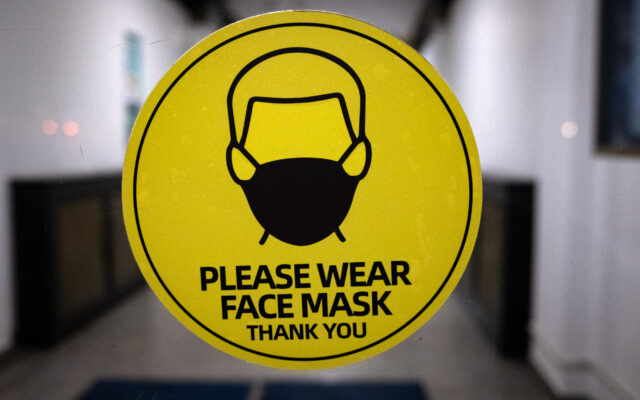
Masking in schools protects and preserves in-person education
By Rebekah Gass and Robert L. Pinsky
As a community, we should all be able to agree that our children need in-person school and want it to be as safe as possible. The information in this column is provided by a diverse group of parents who are local health care professionals with expertise in pediatrics, infectious diseases and infection prevention. We demonstrate how universal masking for children, teachers and school staff is critical.
The delta variant is here and is spreading rapidly. There are 10 times more COVID-19 cases per day in Maine now than there were a year ago. In Maine, 100 percent of COVID samples surveyed in August 2021 were identified as the delta variant. With the delta variant, people carry about 1,000 times more virus in their nose and throats compared with the original strain. The increased amount of virus is part of what makes delta more infectious to everyone.
Children spread the virus. Spread of SARS-CoV-2 within schools poses risk directly to children and school employees, and to those who have regular contact with these individuals. People with weakened immune systems and those who are unvaccinated are most at risk. Without preventative efforts. schools will serve as a source of community spread.
COVID-19 affects young children. More children are hospitalized now than at any other point in the pandemic (on Aug. 14, more than 1,900 U.S. children were hospitalized with COVID-19). Children can become severely ill with COVID-19 and suffer long-term effects, such as multisystem inflammatory syndrome in children. That syndrome affects multiple organs and can cause long-term damage, especially to the heart. Children who recover from COVID-19 can also experience prolonged symptoms like fatigue and cognitive problems, which can affect their learning for months. Increased cases will lead to more illness and less time in the classroom.
Hospitals in Maine could reach a breaking point. Surging community spread will increase the pressure on healthcare systems, potentially decreasing community access to lifesaving medical care and overwhelming our limited pediatric capacity. We already see reduced availability of some of the therapeutics used for patient management.
Preventing the spread of SARS-CoV-2 takes a multilayered approach. This includes masking, distancing, hand hygiene, environmental hygiene (e.g., cleaning and ventilation), staying home when ill, and vaccination. Many Maine schools lack the infrastructure and budget to improve ventilation systems and vaccination is not currently an option for those younger than 12. Masking, distancing and cleaning are three attainable prevention efforts with proven benefit for children in grades K-12.
Masking is an act of caring for everyone in the community. Wearing masks will not affect the oxygenation of the wearer as carbon dioxide cannot be trapped by breathable materials. Oxygen will flow through and around the mask while blocking respiratory droplets which may contain SARS-CoV-2. Masking offers an effective intervention that when implemented universally and combined with a multilayered approach offers sufficient suppression of transmission. Masking will not only reduce spread of COVID-19 but also other respiratory illnesses that remove children from in-person learning such as influenza, respiratory syncytial virus and pertussis. Parents can help keep children more comfortable by having several breathable masks that don’t put pressure on the ear.
We recognize the challenges SARS-CoV-2 has presented and applaud the dedication of parents, school staff, and community members. We also recognize and value the need to be flexible as the characteristics of this pandemic change. Based on available data regarding transmissibility of the delta variant and the recommendations of the U.S. Centers for Disease Control and Prevention, Maine Department of Education and the American Academy of Pediatrics, which strongly recommend universal masking indoors regardless of vaccination status, we support the use of multilayered prevention efforts, and implore schools to implement universal masking for our children.
Gass is an infectious disease physician. Pinsky is an infectious disease physician and hospital epidemiologist. Both are health care providers in Penobscot County.